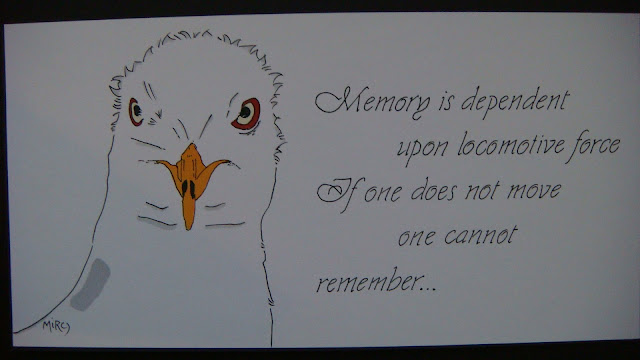Recently, upon seeing yet another lioness on a billboard advertising cheap whisky, I wondered if there are such things as animal lawyers (who could perhaps defend the lioness in terms of defamation of character, and exploiting her fine image without permission or payment). We have all heard of animal rights, so I figured that there should be.
The truth of the matter is that although there are a few look-warm legal agencies that try and support animals, the bulk of the animal world gets short shrift from the human community. From a purely legal standpoint, animals have no legal voice because they are considered property under the law. This appears to be the same statute that applied to slaves and slavery under Roman law: slaves had no voice of their own, only their masters could speak for them.
Not only do we farm and kill animals for no more reason than indulgence and stupidity (our meat and car-based society is a brain-washed society), but we 'grow' them in order to make things out of them. I mean, can you imagine, looking after a family of crocs just so you can skin them and have a nice little handbag?
So, it got me wondering, what animals might say if we could hear them? Indeed, you can hear them, if you go to the right places, and are in the right 'frame of mind'. All animals speak, whether through their body-land interactions or through their very mouths themselves. There is very little 'small-talk' in the animal's world, so much of what you hear is essential, that is, it derives from the essence that is 'Live-Reality'. We humans inhabit that self-same-essence, and so if you can manage to tap into it (get yourself deep enough into your root system and clear away all the claptrap), then you can easily 'interpret' what animals are saying.
Speaking as someone who has had the privilege to study many of the world's human languages, and having lived in over a dozen countries as an EFL teacher, I can safely say that learning 'animal' whether it be gull, salmon, or deer, requires just as much patience and application as learning any other language. It's not so much a matter of zoo- or xeno-linguistics, or 'words', as it is of bodily essences and expanding circles, and getting into the wild zone where wild original voices (or indeed, The Soul) will be heard.
'Voice', as the philosopher Jean Luc Nancy writes in Vox Clamans in Deserto, 'is language's intimate precession, even if it is a stranger to language itself.'
Thus, the words here, though they be in English or Scots, are actually the earth's own tremblings. They're not so much 'human words' as 'earthy vocalisations' and 'hearkenings'. After all, animal and environment are one, so what the animal says must first come through the land.
In our current climate of crisis and conflict, and verbosity (all functions of our losing touch with the essential and being simultaneously overwhelmed with the extraneous), we would do well to pay heed to the penetrating voice of the earth.
WORDS
I don't take your words.
Merely as words.
Far from it.
I listen.
To what makes you talk.
Whatever that is. And me listen.
Shinkichi Takahashi, The Triumph of the Sparrow
Each voice cries out in the wilderness, like that of the prophet. And it is in the wilderness of forsaken existence, prey to both lack and absence, that the voice first makes itself heard.
Jean Luc Nancy, Vox Clamans in Deserto
...voice arises first in the animal... it is the animal's mode of trembling freely in himself. His soul resides in this trembling... it is the gabbling vocalization of access to being... and this voice which, without signifying anything, signifies signification itself, coincides with the most universal dimension of signification, with being.
...the voice calls the other nomad, or else calls him to become a nomad. It throws out the name of a nomad, which is a precession of his proper name. Which prompts him to leave himself, to give his voice in turn. Voice calls the other to come out in his own voice. Listen.
...it is the soul itself which the voice calls forth from the other... The soul arouses the other within itself. That is voice.
Jean Luc Nancy
Voice defines pure poetry. Paul Valery

...











No comments:
Post a Comment